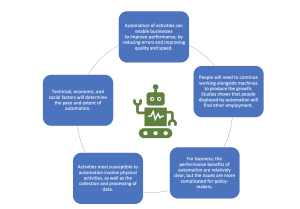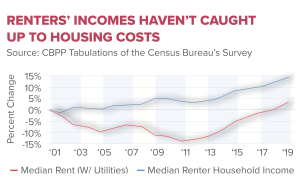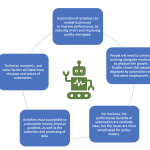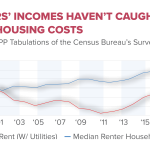Effective managers play a pivotal role in shaping the success of any organization. Their ability to blend the essential qualities of good management—such as strong communication skills, psychological safety, and strategic vision—sets them apart in a competitive landscape. Research has shown that predicting managerial success often hinges more on analytical prowess and decision-making abilities than traditionally emphasized traits like charisma or experience. As companies strive to enhance leadership effectiveness, establishing criteria for selecting managers based on measurable skills may lead to more effective teams and better organizational outcomes. By embracing the principles that define effective management, organizations can foster a culture that nurtures the leadership skills necessary for thriving in today’s dynamic business world.
Proficient leaders are essential for navigating the complexities of modern organizations. The effectiveness of these supervisors is not just a matter of being outspoken; rather, the subtle art of management involves aligning team dynamics and driving performance through strategic insight. Identifying individuals capable of assuming leadership positions is paramount, and understanding the underlying skills that contribute to managerial competence can significantly enhance the selection process. This concept encompasses elements such as resource allocation and decision-making capability, which are vital to fostering an environment where employees can excel. Ultimately, the success of organizations hinges on the ability to cultivate effective leadership through scientifically grounded methods of identifying and developing managerial talent.
Understanding the Qualities of Good Managers
Good managers possess a unique blend of interpersonal and analytical skills that set them apart in their roles. Some key qualities include strong communication abilities, emotional intelligence, and a knack for creating a supportive environment for their teams. Managing a diverse group of individuals requires the capacity to connect with each person’s distinct strengths and weaknesses, fostering a culture of psychological safety where team members feel secure to share their thoughts and feedback. This psychological safety is critical for building trust, which subsequently enhances overall team performance.
In addition to interpersonal qualities, effective managers also demonstrate strategic thinking and decision-making skills. They must understand organizational goals while navigating complex challenges that arise within their teams. For instance, a manager may need to prioritize tasks or redirect workflow in response to shifting business needs. Their ability to analyze information, anticipate problems, and create solutions is crucial to achieving both team and organizational objectives. This blend of qualities makes finding good managers a challenging yet vital endeavor for organizations.
Predicting Managerial Success: Key Indicators
Research has shown that predicting managerial success goes beyond traditional traits such as age, gender, or personal charisma. Instead, certain cognitive abilities and economic decision-making skills are strong indicators of a manager’s effectiveness. For instance, the use of standardized intelligence tests, like Raven’s Progressive Matrices, has shown to correlate with a manager’s capability to solve problems and think critically. These abilities help ensure that managers can effectively lead teams and make informed decisions under pressure.
Moreover, economic decision-making skills—essentially the capacity to allocate resources wisely—serve as another vital predictor. Managers who can assess various options and apply sound judgment in resource distribution are likely to excel in achieving strategic goals. Together, these indicators form a more reliable basis for selecting managers, enabling organizations to prioritize merit over subjective traits when assembling their leadership teams.
Selecting Managers: Moving Beyond Conventional Wisdom
Traditionally, organizations have relied on subjective criteria such as personality traits or leadership aspirations to select managers. However, research indicates that these conventional approaches often lead to poor managerial appointments. The findings suggest that companies should adopt a more analytical process for selecting managers, focusing instead on quantifiable performance indicators such as cognitive ability and decision-making skills. This evidence-based approach allows firms to more accurately identify individuals who possess the qualities essential for effective management.
Such a shift in selection methodology not only improves the likelihood of appointing competent managers but also enhances overall organizational performance. Companies that embrace an analytical framework for manager selection are likely to see gains in productivity and employee satisfaction. As the study reveals, moving away from subjective hiring practices and toward empirical talent assessment can fundamentally change the dynamics of leadership within an organization.
The Role of Effective Managers in Organizational Success
Effective managers play a crucial role in steering organizations through challenges and achieving long-term success. They possess the skills necessary to optimize team performance, which directly contributes to the organization’s ability to compete and adapt in an ever-changing market landscape. By effectively managing resources and motivating team members, good managers ensure that organizations can maintain focus on their strategic objectives while navigating complex operational demands.
Additionally, strong managers foster an environment of growth and development, encouraging employees to develop their skills and reach their potential. This supportive approach not only boosts morale but also enhances the overall efficiency of the organization. When employees feel valued and engaged, as a result of effective management practices, they are more likely to be productive and loyal, ultimately driving the organization towards greater success.
Importance of Leadership Effectiveness in Management
Leadership effectiveness is a cornerstone of successful management. The ability to inspire and influence others allows managers to foster collaborative and productive teams. Effective leadership goes beyond mere authority; it involves establishing a vision, aligning team goals with organizational objectives, and cultivating an environment where team members are empowered to perform at their best. The interplay between leadership qualities and managerial skills underpins the effectiveness of any managerial role.
Furthermore, effective management is not solely reliant on the manager’s individual capabilities. It requires strong collaboration and communication within the team. When leaders demonstrate clear communication and show an understanding of team dynamics, it enhances the effectiveness of their management style. This indicates that the relationship between leadership effectiveness and management cannot be underestimated, as it significantly influences team cohesion and overall productivity.
Evaluating Managerial Performance: A Scientific Approach
Adopting a scientific approach to evaluating managerial performance enables organizations to obtain objective insights into leadership effectiveness. Traditional evaluation methods often rely on subjective assessments, which can be biased and inconsistent. Instead, organizations should focus on quantifiable metrics derived from actual performance data, allowing for a clearer understanding of a manager’s capabilities. This method can include analyzing team output and success rates in relation to different managerial styles and strategies.
Moreover, experimental assessments, such as randomized trials of managerial roles within controlled settings, provide valuable insights into what truly drives successful management. By carefully observing how different management styles impact team productivity, organizations can identify effective practices and patterns. These findings pave the way for more data-driven decision-making in selecting and developing prospective managers within organizations.
The Challenges in Finding Good Managers
Finding good managers remains a complex challenge for many organizations. This can be attributed to various factors, including a lack of standardized metrics for evaluating those in leadership roles. Companies often settle for mediocre selections, relying on superficial attributes rather than more scientifically-backed predictors of managerial success like cognitive abilities or resource decision-making skills. This misalignment can lead to inefficiencies and missed opportunities within teams, ultimately affecting the organization’s bottom line.
Furthermore, the subjective nature of desire for leadership can cloud judgment during the selection process. Individuals who express a strong interest in managerial roles may not possess the requisite skills, leading to leadership failures. Organizations must therefore recalibrate their criteria for selecting managers, focusing on evidence-based practices that prioritize actual competencies over desires or superficial metrics. By doing so, they can better navigate the complexities of selecting effective leaders.
Improving Management Practices for Better Outcomes
To enhance management practices and ensure better organizational outcomes, companies should consider implementing structured assessment and training programs that emphasize the skills predictive of managerial success. By integrating cognitive testing and decision-making simulations into the hiring process, organizations can identify better-suited candidates for leadership roles. Furthermore, ongoing training and development programs focused on both hard and soft skills will help existing managers refine their capabilities and adapt to evolving organizational needs.
Regular performance feedback and collaborative evaluations of managerial effectiveness would also contribute to a culture of accountability and continuous improvement. By instilling a feedback-rich environment, organizations can help managers recognize their strengths and areas for growth, thereby enhancing their overall effectiveness. Ultimately, these improvements not only benefit the managers but also enhance team performance and organizational success.
The Future of Management Selection
As businesses continue to evolve, the future of management selection will increasingly rely on data-driven methodologies that capitalize on empirical research. Organizations will likely adapt their recruitment strategies to focus on quantifiable attributes rather than subjective assessments, leading to a more refined approach to identifying competent managers. Implementing AI and machine learning tools could further enhance this process by analyzing large datasets to predict managerial success accurately.
In addition, expanding the methods employed to assess potential managers will create opportunities for better leadership development. Real-world applications, combined with laboratory-style experiments in management, will enable organizations to gain insights into what truly defines effective leadership. By embracing this scientific analyzing method, companies not only improve their management selections but also contribute to the overall enhancement of the leadership landscape.
Frequently Asked Questions
What are the key qualities of effective managers that lead to better leadership effectiveness?
Effective managers possess a blend of interpersonal and analytical skills, including the ability to create psychological safety for their teams, strong communication abilities, strategic vision, and a capacity to reassess organizational effectiveness. These qualities enable managers to lead successfully and adapt to various challenges.
How can organizations improve their approach to selecting managers for leadership roles?
Organizations can enhance their management selection processes by focusing on measurable skills that predict managerial success, such as IQ and economic decision-making skills. By prioritizing these factors over personality traits and preferences, companies can identify more effective managers who truly understand resource allocation and team dynamics.
What management skills are most predictive of managerial success in corporate environments?
The most predictive management skills include general intelligence as assessed by logical reasoning tests alongside economic decision-making skills. These abilities help managers face complex challenges and make informed decisions that lead to improved team performance and organizational success.
Why do good managers often go unnoticed, and what makes them effective?
Many good managers may not be the most vocal leaders; often, their effectiveness is evident in the stability and growth of their teams. They may work quietly but strategically to enhance team dynamics, allocate tasks appropriately, and foster a supportive environment, making them invaluable assets to any organization.
How does empathy contribute to the effectiveness of managers in their roles?
Empathy plays a crucial role in effective management, as it enables managers to understand their team members’ perspectives, create psychological safety, and tailor their feedback to individual needs. By fostering an environment of trust and open communication, empathetic managers can motivate their teams to perform better.
Why is it important to evaluate economic decision-making skills when predicting managerial effectiveness?
Evaluating economic decision-making skills is vital because these skills relate directly to resource management and prioritization under pressure. Managers with strong decision-making abilities are more likely to allocate resources efficiently, drive team productivity, and achieve organizational goals.
What research insights can guide companies in developing their potential managers?
Research indicates that companies should rely on scientific and analytical methods to assess management potential rather than conventional personality evaluations. Implementing clear performance metrics and testing candidates’ problem-solving and resource allocation abilities can lead to smarter hiring and promotion decisions.
How can organizations leverage the findings about effective managers to boost overall productivity?
By adopting a systematic approach to identify and select effective managers based on quantifiable skills, organizations can enhance productivity significantly. Implementing structured evaluation methods not only helps in hiring better managers but also facilitates more effective leadership and better team performance.
What pitfalls should companies avoid when selecting managers for their teams?
Companies should avoid selecting managers based solely on personality traits, preferences, or conventional metrics like age and experience. Instead, they should focus on objective measures of intelligence and decision-making capabilities to ensure they are promoting individuals who can actually lead effectively.
How can understanding the relationship between management skills and team performance inform leadership selection processes?
Understanding that effective management skills can lead to improved team performance helps organizations refine their selection criteria. Focusing on compatibility between managers’ abilities and the specific challenges their teams face ensures that leadership selections are not based on arbitrary traits but on predictive outcomes that enhance organizational success.
| Key Points | Details |
|---|---|
| Role of Effective Managers | Good managers are rare and essential for organizational success, impacting team dynamics and overall performance. |
| Predictors of Management Success | Two key factors: IQ (measured by Raven’s Progressive Matrices) and economic decision-making skills. |
| Common Selection Mistakes | Companies often select managers based on personality, age, or experience, which are not good predictors of success. |
| The Impact of Desire on Performance | Individuals who self-nominate for leadership roles tend to perform worse than those assigned randomly. |
| Managerial Skills Required | Successful managers need interpersonal skills, analytical skills, and the ability to strategize effectively. |
| The Importance of Good Managers | Good managers lead teams through complex strategic challenges to maximize organizational efficiency. |
| Implications for Organizations | Organizations should adopt analytical methods to evaluate management potential and enhance productivity. |
Summary
Effective managers need to recognize that merely aspiring to a leadership position does not equate to effective management. This study underscores the importance of utilizing analytical methods to identify true managerial talent rather than relying on traditional metrics like personality or experience. As organizations evolve, the call for efficient management becomes more apparent, emphasizing the need for a systematic approach to selecting leaders. By focusing on measurable traits such as intelligence and decision-making skills, effective managers can transform their teams and drive substantial growth.











